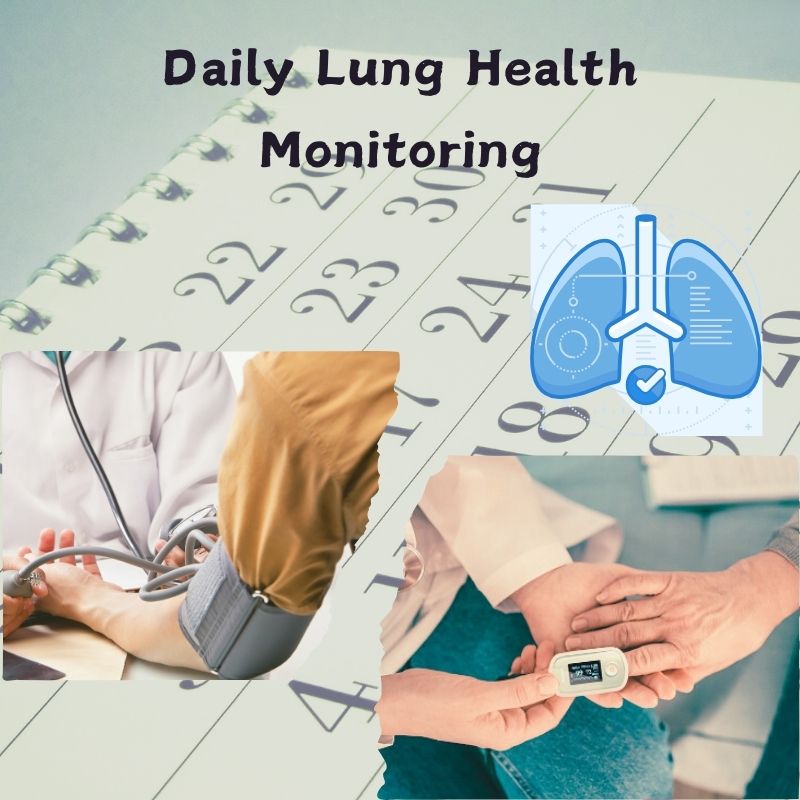Factors that Harm Lung Health
Lung health is vital for overall well-being, yet numerous factors can compromise respiratory function. These include:
- Smoking: The leading cause of lung disease, smoking introduces harmful chemicals that damage lung tissue and reduce oxygen exchange.
- Air Pollution: Exposure to pollutants, such as industrial emissions, vehicle exhaust, and indoor pollutants (e.g., mold, dust, and chemicals), can irritate and inflame the lungs.
- Occupational Hazards: Certain jobs expose individuals to harmful substances like asbestos, silica, and chemicals, increasing the risk of lung disease.
- Infections: Chronic respiratory infections like tuberculosis, pneumonia, and bronchitis can cause long-term lung damage.
- Chronic Diseases: Conditions like asthma, chronic obstructive pulmonary disease (COPD), and lung cancer significantly impair lung function.
- Sedentary Lifestyle: Lack of physical activity can weaken the muscles that support lung function, reducing overall respiratory efficiency.
Secrets to Maintaining Healthy Lungs
Maintaining lung health involves adopting several proactive measures:
- Quit Smoking: The most effective way to improve lung health is to stop smoking and avoid secondhand smoke.
- Exercise Regularly: Engaging in aerobic exercises, such as walking, running, and swimming, strengthens the respiratory muscles and improves lung capacity.
- Maintain Good Air Quality: Use air purifiers at home, avoid exposure to outdoor air pollution, and ensure proper ventilation to reduce indoor pollutants.
- Stay Hydrated: Drinking plenty of water helps keep the mucosal linings in the lungs thin, facilitating better lung function.
- Practice Deep Breathing Exercises: Techniques such as diaphragmatic breathing and pursed-lip breathing can enhance lung efficiency and oxygen intake.
- Get Vaccinated: Vaccinations for influenza, pneumonia, and other respiratory infections can prevent illnesses that may harm the lungs.
The Importance of Daily Lung Health Monitoring
Regular monitoring of lung health is crucial for early detection and management of potential respiratory issues. Daily checks can help:
- Identify Early Symptoms: Monitoring can reveal early signs of lung problems, such as shortness of breath, chronic cough, or wheezing, allowing for prompt medical intervention.
- Track Chronic Conditions: For individuals with asthma, COPD, or other chronic lung diseases, daily monitoring helps track the condition's progression and adjust treatments accordingly.
- Evaluate Treatment Effectiveness: Continuous monitoring provides data on how well treatments or lifestyle changes are working, guiding healthcare providers in optimizing patient care.
- Prevent Complications: Early detection of deteriorating lung function can prevent serious complications, such as respiratory failure or the need for hospitalization.
The Benefits and Significance of Using a Pulse Oximeter for Daily Monitoring
A pulse oximeter is a valuable tool for daily lung health monitoring, offering several benefits:
- Non-Invasive and Easy to Use: Pulse oximeters provide a painless and straightforward method for measuring blood oxygen levels (SpO2) and pulse rate, making it accessible for home use.
- Real-Time Data: These devices offer immediate feedback on oxygen saturation, allowing individuals to quickly assess their respiratory status.
- Early Detection of Hypoxemia: Pulse oximeters can detect low blood oxygen levels early, prompting timely medical intervention and preventing severe hypoxemia-related complications.
- Monitoring During Physical Activity: Individuals can use pulse oximeters during exercise to ensure their lungs are efficiently delivering oxygen, particularly important for those with respiratory conditions.
- Tracking Disease Progression: For chronic lung disease patients, regular use of a pulse oximeter helps monitor disease progression and treatment efficacy.
- Enhanced Healthcare Communication: Data from pulse oximeters can be shared with healthcare providers, facilitating more informed and accurate medical decisions.
If you need it, please contact:
Phone: +86 15118069796(Steven.Yang) +86 13651438175(Susan)
Email: Susan@Narigmed.Com Steven.Yang@Narigmed.Com
Conclusion
Maintaining lung health is essential for overall well-being, and understanding the factors that harm respiratory function is the first step toward prevention. Adopting healthy habits, regular exercise, and ensuring clean air can significantly enhance lung function. Daily monitoring of lung health, especially with tools like pulse oximeters, provides valuable insights into respiratory status, enabling early intervention and effective management of lung conditions. By integrating these practices into daily life,
Post time: Dec-04-2024











